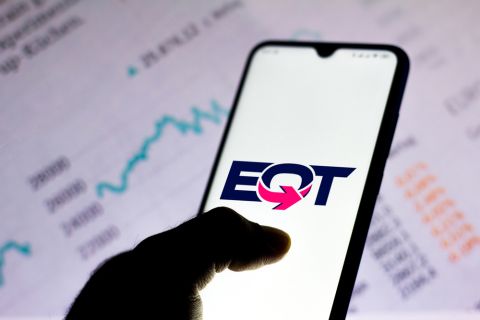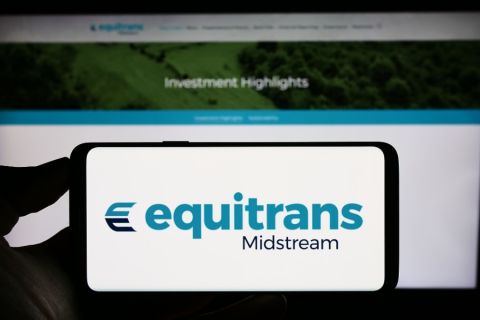Among the top 15 funds providing private capital to the energy sector today, there's some $15- to $20 billion available for investment, primarily in the upstream space. That's among salient facts attendees will hear in early June at the annual private-capital energy forum in Houston, co-sponsored by New York-headquartered Cosco Capital Management LLC and Oil and Gas Investor. "Within the past 18 months, virtually every one of the established top-15 private-capital funds has raised higher levels of institutional money than ever before-often double the size of their previous funds," says Cameron O. Smith, Cosco senior managing director. "Many of those that had $300-million funds two years ago now have $600-million funds while some of the $1-billion funds of last year are today $1.5 billion in size." Putting all this into historical perspective, Smith notes that the amount of private capital invested by the top 15 fund managers, mainly in E&P start-ups, ballooned from about $3 billion in 2001 to around $7.5 billion as of year-end 2004. Last year, he says, these top fund managers made 110 energy investments at an average transaction price of $44 million; meanwhile, they sold or monetized 62 positions in oil and gas companies at an average transaction price of $77 million. "Amid high commodity prices and resulting high returns within the energy sector, we expect private-capital monetizations this year to be higher than in 2004," says Smith. William E. Weidner, another Cosco managing director, observes that hedge funds and more traditional financial institutions like banks are aggressively entering the private-capital space, making structured, fixed-income, yield-oriented investments. "We're also seeing operators like Pioneer Natural Resources using the private markets to monetize assets," says Weidner. Pioneer, through a volumetric-production-payment (VPP) structure, recently completed a $500-million-plus sale of oil and gas reserves. "The reason for the VPP: the company didn't think the public-equity markets were fairly valuing their reserves and that the private markets provided a higher-value solution, in terms of asset monetization." While capital is now flooding into the private-capital arena, finding the right kind of upstream investment remains a challenge, says the head of one major Northeast private-equity fund. "Everyone says the oil and gas industry is capital-short. That's not true. The industry is performance-short." He says firms like his have to beat the upstream bushes to find top-performing E&P managements-those in the top 10% of the industry-who know how to keep an eye on costs. "Right now, our returns are coming from investments in producers focused on unconventional resource plays like coalbed-methane and tight-sand gas, or on the application of new drilling and completion technologies to hundreds of prospect locations," he says. S. Wil VanLoh Jr., managing partner of Quantum Energy Partners in Houston, also sees a lot of money flowing into the private-capital arena, much of it from hedge funds. He cites the case of Celero Energy, a Quantum portfolio producer that last year bought some $325 million of E&P assets. "About $125 million of the funding we arranged for that deal came from a privately placed second-lien debt offering that was sold to 20 different hedge funds." Quantum, which just raised a $345-million, private-equity fund-50% bigger than its previous $225-million equity fund-will likely do more than $1 billion worth of monetizations in 2005, either through IPOs or sales to third parties, says VanLoh. "With high commodity prices, this is a great time to be harvesting earlier investments." One such Quantum monetization occurred in May-the $192-million sale of EnSight Energy Partners, a private Shreveport, Louisiana-based operator, to publicly traded Comstock Resources. The fund manager has some advice for start-up E&P companies seeking this type of money. "Pick your capital partner wisely," says VanLoh. "Make sure he understands energy, what you're doing and why you're doing it, that while times may be good now there will be bumps in the road, that he can be patient through those times, that his interests are aligned with yours, and that he can add value to your enterprise."
Recommended Reading
EQT Declares Quarterly Dividend
2024-04-18 - EQT Corp.’s dividend is payable June 1 to shareholders of record by May 8.
Matador Resources Announces Quarterly Cash Dividend
2024-04-18 - Matador Resources’ dividend is payable on June 7 to shareholders of record by May 17.
BP Restructures, Reduces Executive Team to 10
2024-04-18 - BP said the organizational changes will reduce duplication and reporting line complexity.
Equitrans Midstream Announces Quarterly Dividends
2024-04-23 - Equitrans' dividends will be paid on May 15 to all applicable ETRN shareholders of record at the close of business on May 7.
PrairieSky Adds $6.4MM in Mannville Royalty Interests, Reduces Debt
2024-04-23 - PrairieSky Royalty said the acquisition was funded with excess earnings from the CA$83 million (US$60.75 million) generated from operations.





